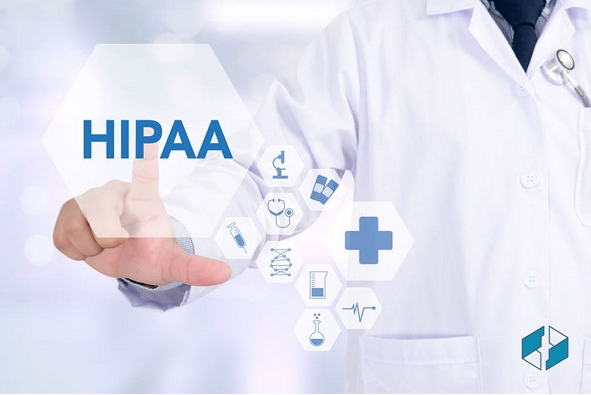- Call Us: +34 605 074 544
- Email us:

Be updated, subscribe to the OpenKM news
OpenKM and HIPAA Law Compliance: A Comprehensive Guide for Secure Document Management
 Written by David Cruz, OpenKM USA, on 18 August 2023
Written by David Cruz, OpenKM USA, on 18 August 2023
In the healthcare industry, safeguarding sensitive patient information is of paramount importance. To ensure data confidentiality, integrity, and accessibility, healthcare organizations in the United States must comply with the Health Insurance Portability and Accountability Act (HIPAA). HIPAA sets stringent standards for the protection of patient data, and failure to comply can lead to severe penalties. This article will explore the significance of HIPAA law compliance and how OpenKM, an advanced document management system, can help healthcare institutions meet these requirements effectively.
What is HIPAA, and Why Does It Matter?
HIPAA, enacted in 1996, is a federal law that aims to protect sensitive patient information and enhance the efficiency of the healthcare system. The law contains two critical rules that impact healthcare providers, health plans, and business associates:
- The Privacy Rule establishes national standards to safeguard medical records and other personal health information. It gives patients control over their data, limiting its disclosure and defining how it should be handled.
- The Security Rule: The Security Rule complements the Privacy Rule by setting standards for the electronic storage, access, and transmission of protected health information (PHI). To ensure data security, healthcare entities must implement administrative, physical, and technical safeguards.
Importance of HIPAA Compliance for Healthcare Organizations
Complying with HIPAA is not merely a legal obligation but also a crucial aspect of building patient trust. When healthcare organizations demonstrate their commitment to protecting patient information, patients are more likely to share sensitive details openly, leading to better care outcomes.
Moreover, non-compliance with HIPAA can lead to severe consequences, including hefty fines and legal penalties. Additionally, organizations found that violating HIPAA may damage their reputation and patient trust, potentially resulting in a loss of business.
OpenKM: A Powerful Solution for HIPAA Law Compliance
Introduction to OpenKM
OpenKM is an enterprise-grade document management system designed to streamline document handling, storage, and retrieval. It offers a feature-rich platform that caters to diverse industries, including healthcare. When it comes to HIPAA compliance, OpenKM stands out for its robust security features and user-friendly interface.
Ensuring Data Encryption and Access Control
One of the fundamental requirements of HIPAA is the implementation of data encryption and access controls. OpenKM addresses this need by providing advanced encryption algorithms to protect data at rest and in transit. This ensures that PHI remains secure even if unauthorized users gain access to the storage infrastructure.
Moreover, OpenKM's access control features allow system administrators to define user roles and permissions. This way, only authorized personnel can view or edit sensitive patient information, reducing the risk of data breaches.
Document Version Control and Audit Trails
HIPAA mandates that healthcare organizations maintain document version control and detailed audit trails. OpenKM excels in this area by automatically tracking document modifications, recording user actions, and maintaining comprehensive audit logs. This capability not only aids in compliance but also assists in tracking changes made to patient records, enhancing transparency and accountability.
Secure Document Sharing and Collaboration
Collaboration among healthcare professionals is crucial for providing the best possible patient care. However, it should be done securely to avoid unauthorized access to PHI. OpenKM offers secure document sharing features that enable authorized users to collaborate effectively without compromising data security.
Disaster Recovery and Data Backups
HIPAA compliance requires healthcare organizations to have robust disaster recovery plans and data backups. OpenKM ensures data availability and integrity by providing automated backups and seamless integration with offsite cloud storage. In the event of data loss or system failure, organizations can quickly restore their critical information, preventing prolonged disruptions to patient care.
HIPAA Training and Documented Policies
Another crucial aspect of HIPAA compliance is employee training and the existence of documented policies and procedures. OpenKM can be used to store and disseminate HIPAA training materials, ensuring that all staff members are well-informed about data security best practices.
Furthermore, organizations can use OpenKM to maintain a repository of documented policies and procedures related to HIPAA compliance. This readily accessible knowledge base facilitates consistent adherence to the law across the organization.

Conclusion
In conclusion, HIPAA law compliance is indispensable for healthcare organizations to protect patient data and maintain their reputation. OpenKM offers a comprehensive document management solution that aligns with HIPAA requirements, promoting data security, privacy, and accessibility. By implementing OpenKM, healthcare institutions can enhance their HIPAA compliance posture, instill patient trust, and focus on providing exceptional medical care. Remember, staying compliant with HIPAA is an ongoing process, and regular audits and updates to security practices are essential to adapt to the evolving landscape of healthcare data security.

